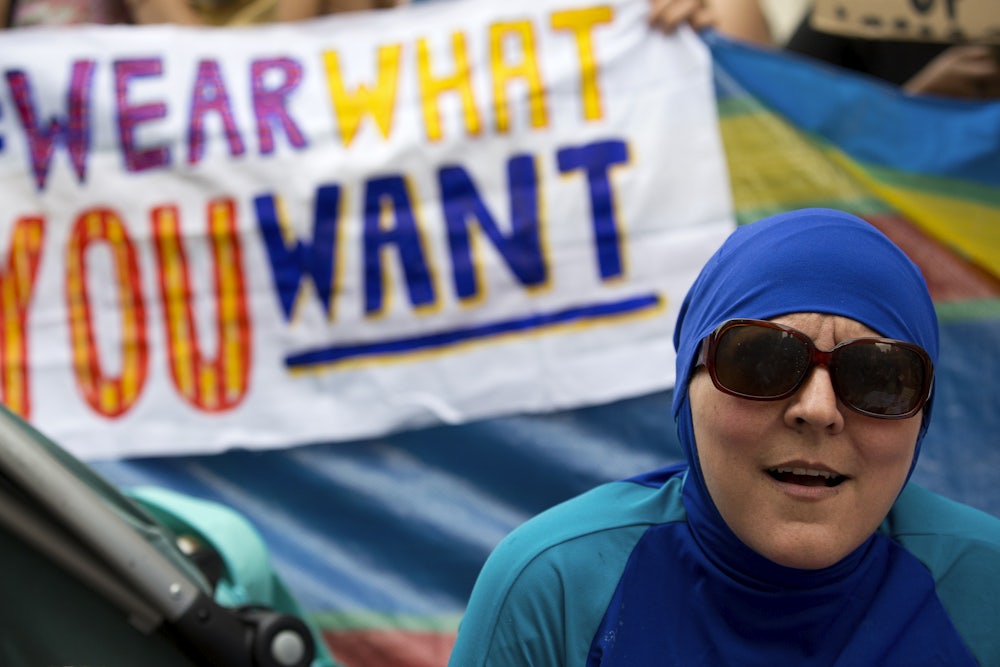France’s supreme administrative court, the Council of State, has struck down the new wave of local ordinances that sought to ban the “burkini,” the wetsuit outfit worn by some Muslim women to go to the beach.
The court’s decision today is a preliminary stay, pending the writing of its final opinion. But the court doesn’t leave any suspense of what that final ruling will say, given that the stay already declares that the ban “seriously, and clearly illegally, breached the fundamental freedoms to come and go, the freedom of beliefs and individual freedom.”
The big wall that this ban hit was the practical question of enforcing it. Look no further than the image of armed police forcing a woman to remove her outer clothing in public, which went viral around the world. It was a bizarre reversal of the sort of photos you might see from a century ago, in which a woman would be arrested for indecent exposure.
The prohibition was also criticized for being a double standard. For example, Catholic nuns wearing their habits at a beach would not be targeted in the same way as Muslim women. This made it clear that, as far as the ban was meant to protect “the values of France,” as stated by Prime Minister Manuel Valls, it had less to do with France’s ultra-secular principle of laïcité, than with stigmatizing a minority community and tapping into growing right-wing sentiment in the country.
In other words, if your efforts to protect women from oppression, and to bring them into mainstream society, involve armed police forcing a woman to take her clothes off at the beach—then you’re doing it wrong.
